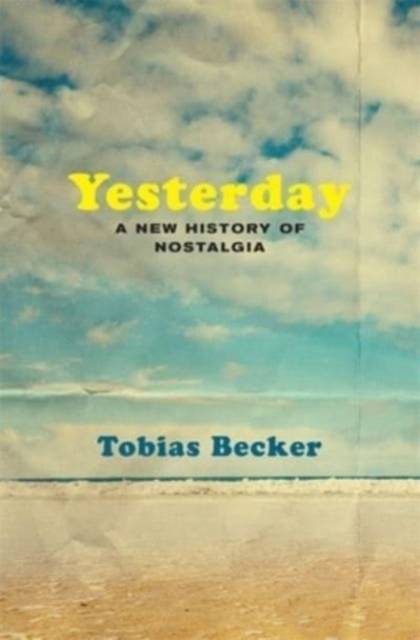
- Afhalen na 1 uur in een winkel met voorraad
- Gratis thuislevering in België vanaf € 30
- Ruim aanbod met 7 miljoen producten
- Afhalen na 1 uur in een winkel met voorraad
- Gratis thuislevering in België vanaf € 30
- Ruim aanbod met 7 miljoen producten
Zoeken
Omschrijving
A sweeping reassessment of our longing for the past, from the rise of "retro" to the rhetoric of Brexit and Trump.
Nostalgia has a bad reputation. Its critics dismiss it as mere sentimentality or, worse, a dangerous yearning for an imagined age of purity. And nostalgia is routinely blamed for trivializing the past and obscuring its ugly sides. In Yesterday, Tobias Becker offers a more nuanced and sympathetic view. Surveying the successive waves of nostalgia that swept the United States and Europe after the Second World War, he shows that longing for the past is more complex and sometimes more beneficial than it seems. The current meaning of "nostalgia" is surprisingly recent: until the 1960s, it usually just meant homesickness, in keeping with the original Greek word. Linking popular culture to postwar politics in the United States, Great Britain, and Germany, Becker explains the shift in meaning. He also responds to arguments against nostalgia, showing its critics as often shortsighted in their own ways as they defend an idea of progress no less naïve than the wistfulness they denounce. All too often, nostalgia itself is criticized, as if its merit did not depend on which specific past one longs for. Taking its title from one of the most popular songs of all time, and grounded in extensive research, Yesterday offers a rigorous and entertaining perspective on divisive issues in culture and politics. Whether we are revisiting, reviving, reliving, reenacting, or regressing, and whether these activities find expression in politics, music, fashion, or family history, nostalgia is inevitable. It is also powerful, not only serving to define the past but also orienting us toward the future we will create.Specificaties
Betrokkenen
- Auteur(s):
- Uitgeverij:
Inhoud
- Aantal bladzijden:
- 344
- Taal:
- Engels
Eigenschappen
- Productcode (EAN):
- 9780674251755
- Verschijningsdatum:
- 5/12/2023
- Uitvoering:
- Hardcover
- Formaat:
- Genaaid
- Afmetingen:
- 157 mm x 236 mm
- Gewicht:
- 703 g

Alleen bij Standaard Boekhandel
+ 91 punten op je klantenkaart van Standaard Boekhandel
Beoordelingen
We publiceren alleen reviews die voldoen aan de voorwaarden voor reviews. Bekijk onze voorwaarden voor reviews.








